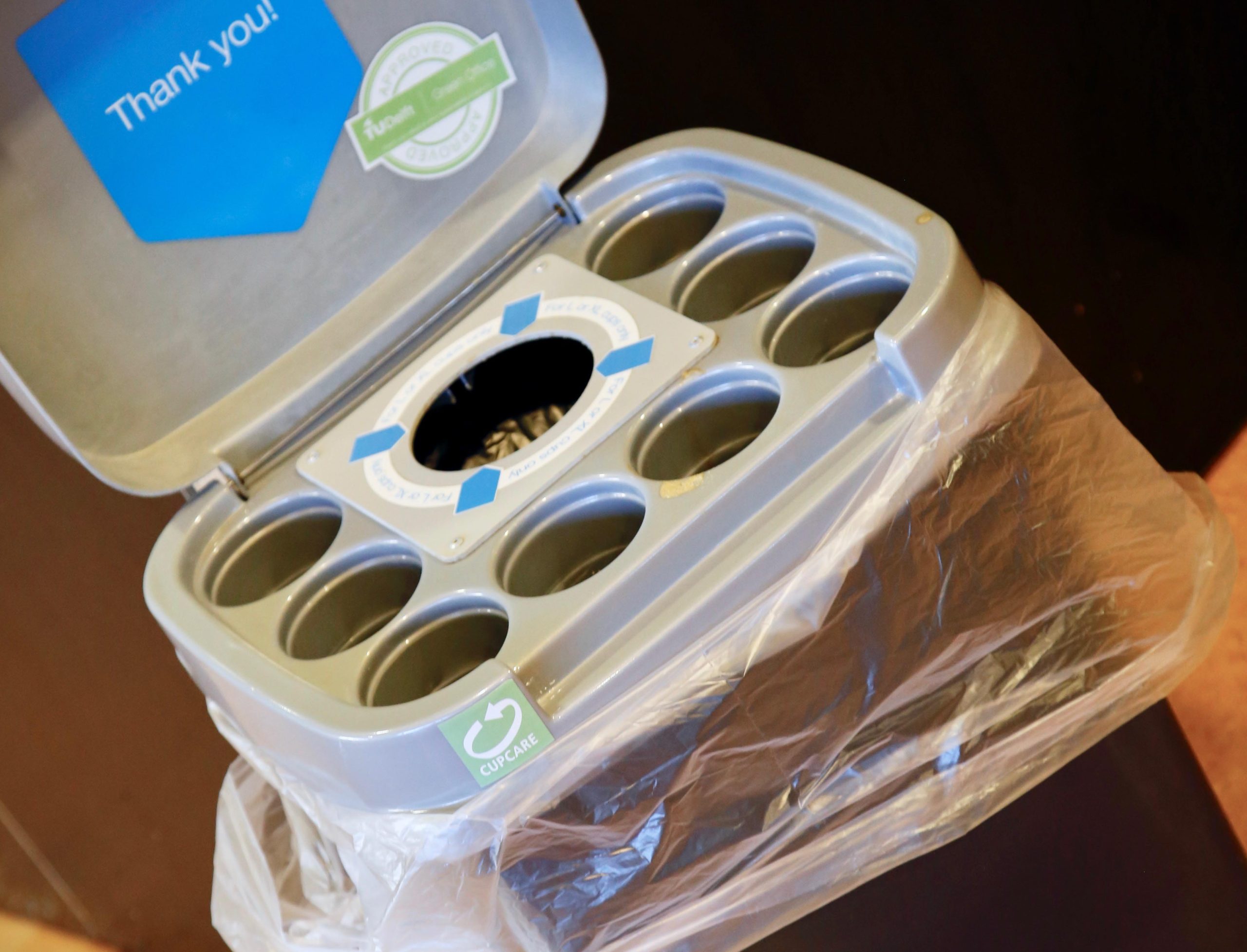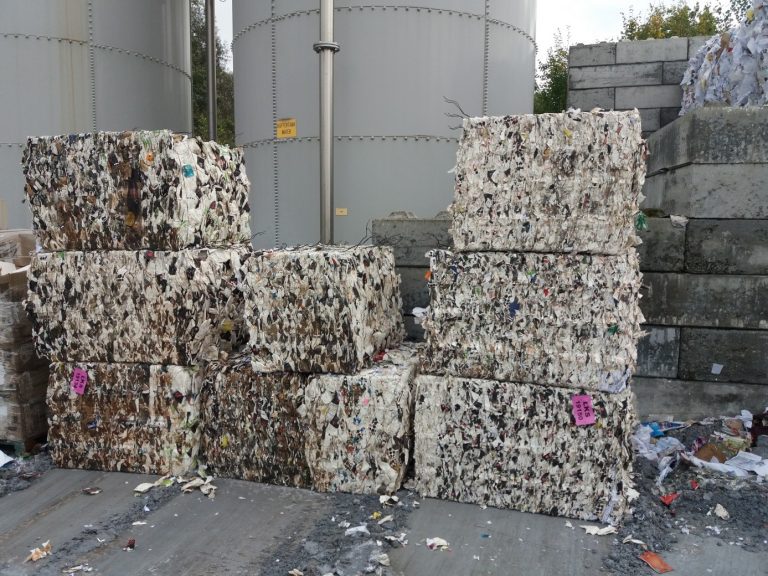You can just throw your empty cup into a regular bin, or you can puzzle out which of those fancy recycling ones you should throw it. Does it really make a difference to global warming? Michiel Faber and Philippe van der Pal, both working for FMVG and responsible for the recycling of the cups, followed the journey of the coffee cups that are recycled.
In the summer of 2015, the contract with the new vending operator was signed. On the April 4th 2016, the entire TU was using and discarding the new cups in separate special bins. In that first year, the TU collected 7.8 tons of cups. In 2017 it was way more, around 13.2 tons. With a total of 2,000 tons of waste production, the cups are still a fraction of all the waste the TU produces – but every bit helps.

“The bins are made in a special way so that the big Coffee Star and Starbucks cups also fit,” says Van der Pal. “The bags of empty cups are collected on Thursdays. The ones that contain a lot of other waste, like pizza trays or plastic bottles, are thrown away with the normal waste.” “The good ones go in the same waste-flow as confidential papers to the company Renewi in Breda,” adds Faber. “At Renewi they also check if there is not too much other waste in the bags. The paper is compressed into bales which then go to the WEPA paper factory in Limburg.”

“The bales going through three or four baths to purify the paper,” explains Van der Pal. “In the first bath, the ink is soaked away. The ink is used again as element in the corrugated cardboard industry, like the ones IKEA uses.” “There is a thin layer of plastic on the inside of the cup to prevent the drink from leaking,” Faber continues. “The plastic is soaked off in a special way and reused for example as material for silicone nozzles.”
In the end, the cups are turned into paper. “The whiteness of the paper shows what it is used for,” says Van der Pal. “If it is yellowish, it will be used as paper towels for industrial use. If it is white, it will become toilet paper.” The toilet paper is not used at TU Delft. “But we are looking into the possibility that the new Pulse building will get the toilet paper made from our cups.”
‘We want to facilitate behaviour change’
This way, TU Delft recycles around 66% of its coffee cups. “Our goal is to recycle 75%,” says Van der Pal, “but we will not address people on their behaviour as this is counterproductive – we are not their educators. We want to facilitate behaviour change and make people aware that their cups can be recycled.”
And in the future? “We want to recycle as much as possible. For example, the cutlery at Sodexo is not the compostable ones we had before. It is plastic again. The old ones were compostable, but took 20 weeks to break down – in the Netherlands, the process of composting usually takes six weeks – so the compostable cutlery was incinerated anyway. The plastic ones can be recycled into new plastic. It is still in the pioneer phase, but it is a start. It’s easy to say ‘we have to collect this separately’, but organising separate collection for all the TU buildings is a huge puzzle. In March we will have a new contract with the catering section. We are looking into companies that are really into recycling and other sustainability facets in catering.”
Roos van Tongeren / Redacteur



Comments are closed.